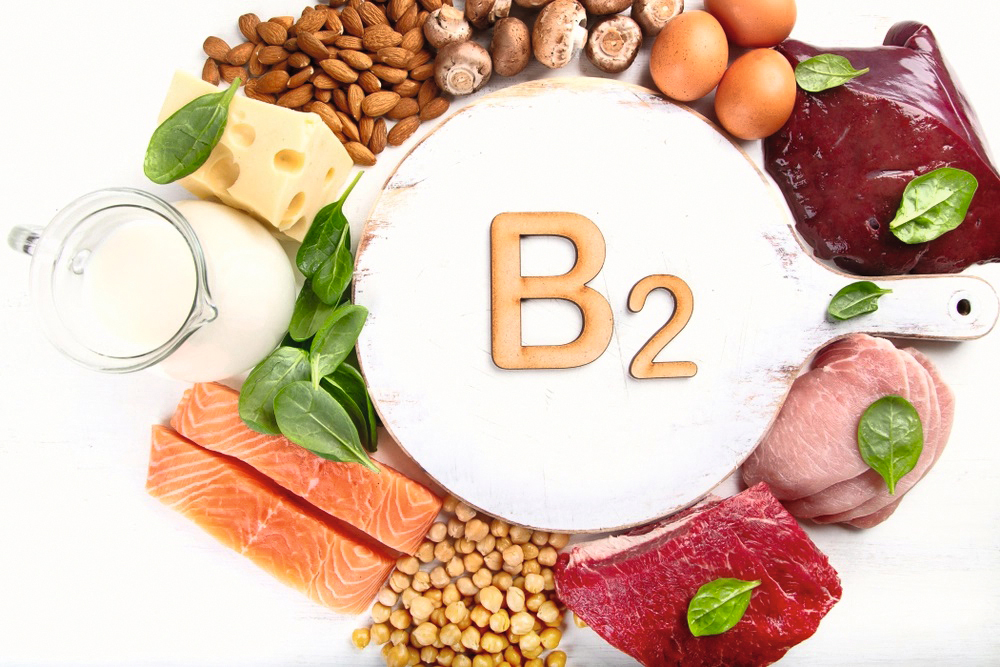|
Getting your Trinity Audio player ready...
|
Vitamin B2, also known as riboflavin, plays a crucial role in the body’s energy metabolism and maintenance of cell function.
By: Jingduan Yang
Vitamin B2, also known as riboflavin, plays a crucial role in the body’s energy metabolism and maintenance of cell function. A deficiency in this vitamin can lead to various health issues. In this article, we will introduce the functions of vitamin B2, its deficiency symptoms, supplementation methods, and related precautions.
Functions of Vitamin B2
Vitamin B2 is an essential component of coenzymes in the body, crucial for maintaining normal physiological functions. Its primary functions include the following:
Energy production: Vitamin B2 plays a crucial role in metabolizing fats, carbohydrates, and proteins, aiding in the extraction of energy from food to support normal bodily functions.
Cellular function maintenance: Vitamin B2 is vital for various cellular activities, including the synthesis of genetic material.
Skin, nerve, and eye health: Vitamin B2 can improve skin conditions and prevent nerve pain and vision decline. A nonrandomized trial found that using riboflavin eye drops and low-dose ultraviolet treatment on patients with keratoconus improved their uncorrected visual acuity and best spectacle-corrected visual acuity. Additionally, a randomized controlled trial involving 55 adults with migraine indicated that vitamin B2 can reduce the frequency of migraine attacks.
Anti-cancer and antioxidant properties: Vitamin B2 possesses antioxidant properties that protect cells from oxidative stress and damage caused by free radicals, thus lowering the risk of cancer. A study published in the European Journal of Nutrition showed that vitamin B2 intake was inversely associated with the risk of colorectal cancer. Another study found that vitamins B2, B6, and B9 exerted anti-tumor effects on promonocytic lymphoma cells.
Signs of Vitamin B2 Deficiency
As vitamin B2 supports many enzymes in performing various daily functions in the body, a deficiency can lead to numerous health problems. Common signs of vitamin B2 deficiency include:
- Dry and cracked lips, with pain at the corners of the mouth
- Inflammation of the oral mucosa and tongue, presenting symptoms of redness, swelling, and pain. Mouth ulcers may also be present.
- Inflamed and painful throat, causing difficulty swallowing
- Skin inflammation, leading to dryness, roughness, itching, and rashes
- Corneal inflammation, with redness and pain in the eyes
- Digestive issues such as nausea, vomiting, and diarrhea
- Nerve pain, cognitive function impairment, and emotional issues
- Fatigue and metabolic disorders
- Groups at Higher Risk of Vitamin B2 Deficiency
Vitamin B2 is naturally present in many foods. Inadequate intake of vitamin B2 in the diet or conditions affecting its absorption and utilization in the body can lead to a deficiency. The following groups are at higher risk of vitamin B2 deficiency:
People with a monotonous diet: While some foods are rich in vitamin B2, others lack it. An unbalanced and monotonous diet can lead to a deficiency in this vitamin.
Vegetarians and vegans: Plant-based foods typically have lower levels of vitamin B2, so vegetarians need to pay attention to their vitamin B2 intake.
Older adults: As people age, their digestive function tends to decline, leading to reduced absorption and utilization of nutrients. This can, in turn, result in vitamin B2 deficiency.
People with chronic diseases: Some chronic diseases can affect the absorption of vitamin B2. For example, chronic gastrointestinal inflammation, such as that seen in celiac disease (gluten-sensitive enteropathy) and Crohn’s disease, can lead to a deficiency of vitamin B2.
Infants: Infants primarily receive their nutrition from breast milk or formula. If the mother’s intake of vitamin B2 is insufficient, or if the formula lacks adequate vitamin B2, it can lead to a deficiency in infants. Therefore, women need to ensure they get enough vitamin B2 during pregnancy and lactation.
Precautions When Taking Vitamin B2 Supplements
Foods rich in vitamin B2 include salmon, tuna, lean pork meat, eggs, mushrooms, spinach, almonds, and avocados.
In addition to getting vitamin B2 from food, you can also opt for vitamin B2 supplements. Supplementing with vitamin B2 is generally safe. Since it is a water-soluble vitamin, it does not accumulate in the body, reducing the risk of toxicity or allergies. However, taking excessively high doses of vitamin B2 or using it in combination with other medications can lead to adverse reactions. Here are some precautions to consider when taking vitamin B2 supplements:
Avoid excessive intake: Excessive vitamin B2 intake may cause symptoms such as stomach discomfort, diarrhea, and increased urination. According to the Harvard T.H. Chan School of Public Health, the recommended dietary allowance of vitamin B2 for males and females aged 19 and above is 1.3 milligrams and 1.1 milligrams per day, respectively. The recommended intake is increased to 1.4 milligrams and 1.6 milligrams per day, respectively, for pregnant and lactating women.
Interactions with medication: Vitamin B2 supplements may interfere with the absorption of certain medications, such as tricyclic antidepressants and some anti-malarial drugs.
Potential allergic reactions: Vitamin B2 supplements may contain additional ingredients that can cause allergic reactions in some individuals, resulting in symptoms like itching or hives. Therefore, it is essential to carefully read the ingredient list when choosing a vitamin B2 supplement.





